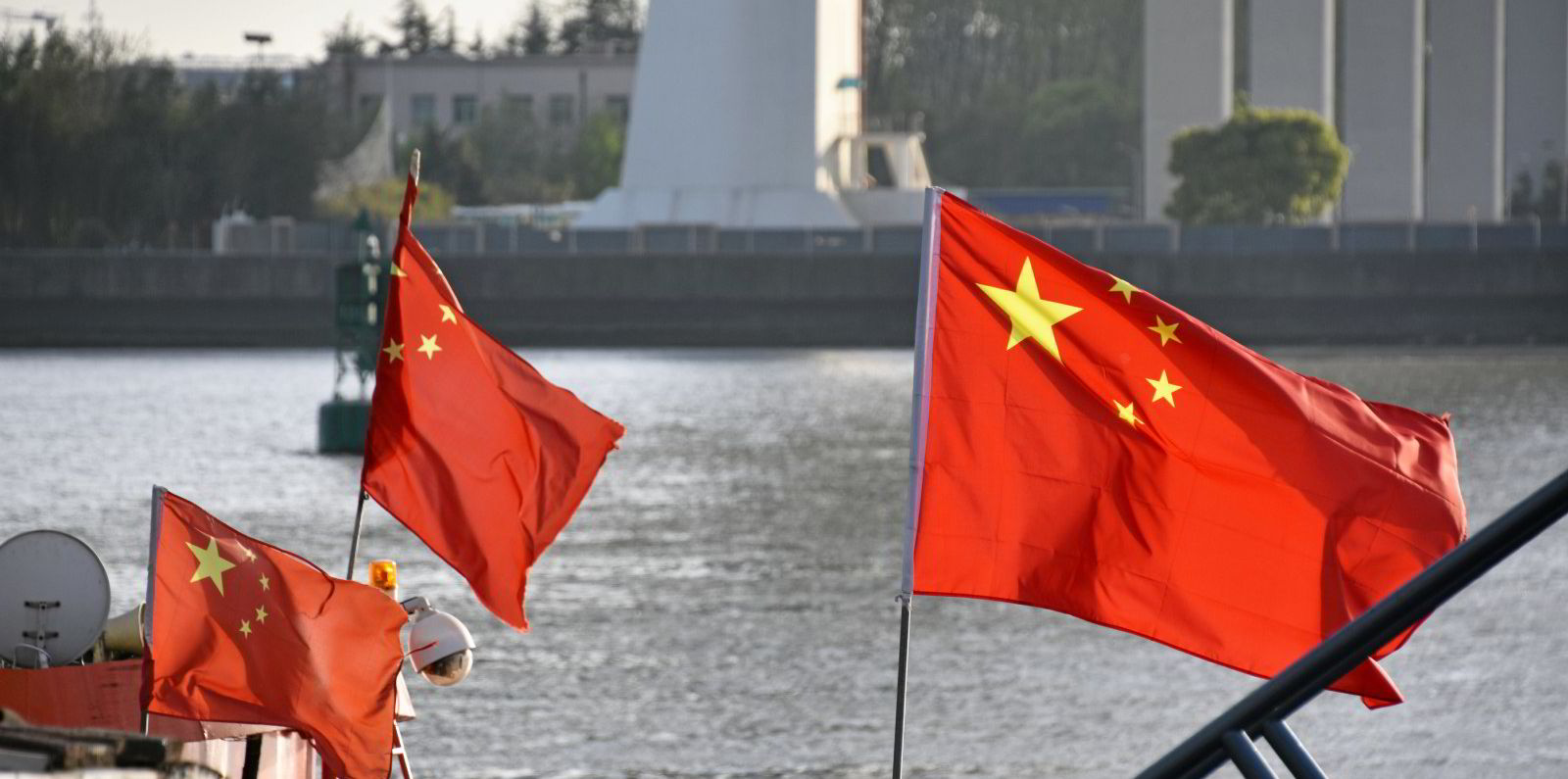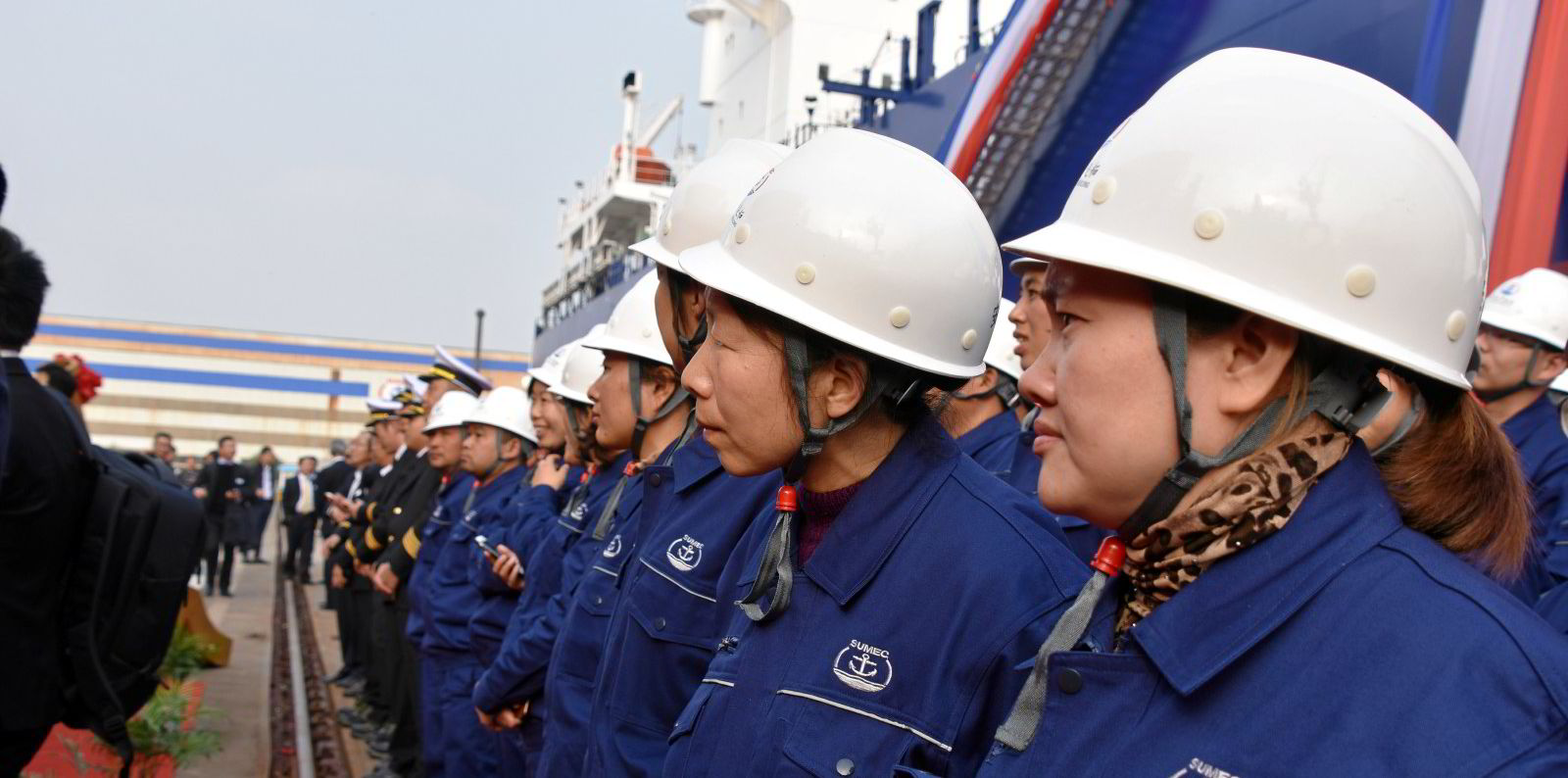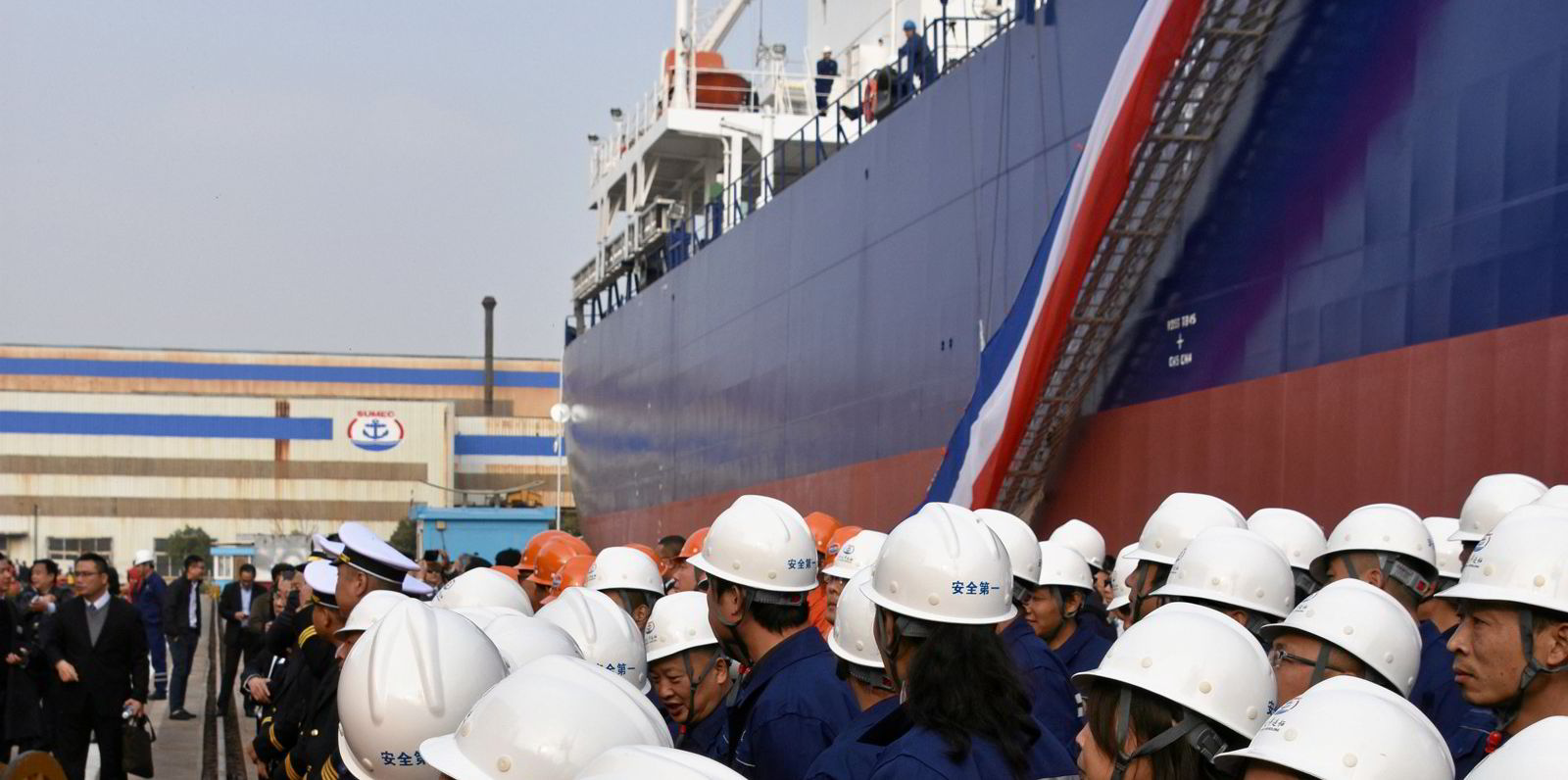China Development Bank Financial Leasing (CDB FL) is continuing to expand its orderbook with a quartet of pricy ultramax bulk carrier newbuildings.
The leasing arm of Hong Kong-listed China Development Bank, CDB FL has disclosed that it has ordered four 63,000-dwt bulk carrier newbuildings worth CNY884m ($132m), or $33m apiece, at Jiangsu-based New Dayang Shipbuilding.
This latest deal at New Dayang lifts the lessor’s ultramax order tally at the shipyard to 13 vessels. Nine similar newbuildings were ordered last year.
CDB FL’s is paying $4m per ship more for the latest newbuildings due to rising shipbuilding materials and labour cost. The nine vessels that the company ordered last October were reported to have cost $29m each.
The ultramaxes will be built to the International Maritime Organization’s Tier III NOx standards and based on a Crown 63-Plus design.
CDB FL said the ordering of the ultramax bulk carriers will increase its market share in the ultramax segment and is consistent with its business development strategy.
Shipbuilding sources said CDB FL is slated to take delivery of the 13 ultramax bulkers from New Dayang between the second half of 2023 and the end of 2024.
CDB FL is the third Chinese leasing company to have inked ultramax bulker contracts at New Dayang this month. China Merchants Bank Financial Leasing (CMB FL) ordered four, while Avic International Leasing ordered two.
Both these lessors will see their newbuildings delivered in 2024.
The latest contract from CDB FL gives New Dayang a total orderbook of 42 ships, according to data from Clarksons’ Shipping Intelligence Network.
Four of the ships on the yard’s orderbook are 1,170-teu container ships, while the rest are bulk carriers of between 60,000-dwt and 76,000-dwt.
New Dayang was previously known as Dayang Shipbuilding. The shipyard turned state-owned in 2018, when Sumec Marine, a subsidiary of Beijing’s China National Machinery Industry Corp (Sinomach), a former creditor, took over the shipyard.
The Yangzhou-based shipyard suffered a financial collapse in 2016, which led to it filing for bankruptcy. It was owned by businessman Simon Liang Xiaolei at the time.






